It Takes A Team
80,000 bees help Dr. Joshua Friese rejuvenate and recharge
Not many people choose to hang out with tens of thousands of bees for fun. But for Joshua Friese, MD, a family physician in Redwood Falls, keeping bees and harvesting their honey has become a passion that connects him to the land, his community, and his purpose.
“My wife’s family had bees – her grandfather had honeybees growing up and they had honey all the time. And when my son was four years of age, he commented, ‘Can we have bees?’ And we kind of thought well, we have six and a half acres, I think we might be able to find some space for that. So that Christmas, he got his honey suit to wear and the next spring we figured out where to get bees and we started.”
Dr. Friese says caring for the bees and tending to the farm keeps him grounded and gets him out of his head.
I appreciate being outside, working for an hour or two at nighttime after work so I can rejuvenate because stress at work is big.”
Joshua Friese, MD
“I appreciate being outside, working for an hour or two at nighttime after work so I can rejuvenate because stress at work is big. You see patients and there are lots of problems. Unless you have that outlet, you keep it bottled up inside and that’s no good for the mind, no good for your community, no good for your partners or coworkers that you work with because you need to be fresh. You need to be on your A-game and you need to take time for yourself and rest on a daily basis. I do that by getting outside and playing with the bees.”
Labor of love
Caring for the bees has become a seasonal ritual for Friese’s family, starting in early spring when they set out sugar water for the bees that have survived the winter. For the first month or so, Josh and his wife Rachel will check on the bees every week. Once the hives are well established, they’ll check back every three weeks or so, adding new boxes to the hives as they fill up with honeycomb.
Now, at the end of the summer, Josh and Rachel are in the process of getting the bees to go back down into the lower brood boxes, so that the upper boxes of honeycomb – called “supers” – can be taken off and brought back to the house for processing.
Working in bee suits and with a smoker, they carefully deconstruct the hive and check out the honey production within.
A single hive can have anywhere from 50-80,000 bees in it. One of the hives has five boxes stacked on top of it. Each box, when full, can weigh upwards of 50 pounds. This year the Frieses estimate they’ll harvest about 10 gallons of honey.
“Each honeybee probably produces 1/12 of a teaspoon of honey,” explains Dr. Friese. “So it takes a team to truly make a significant amount of honey – nevermind to organize it and produce it and make it into something sweet that you want back.”
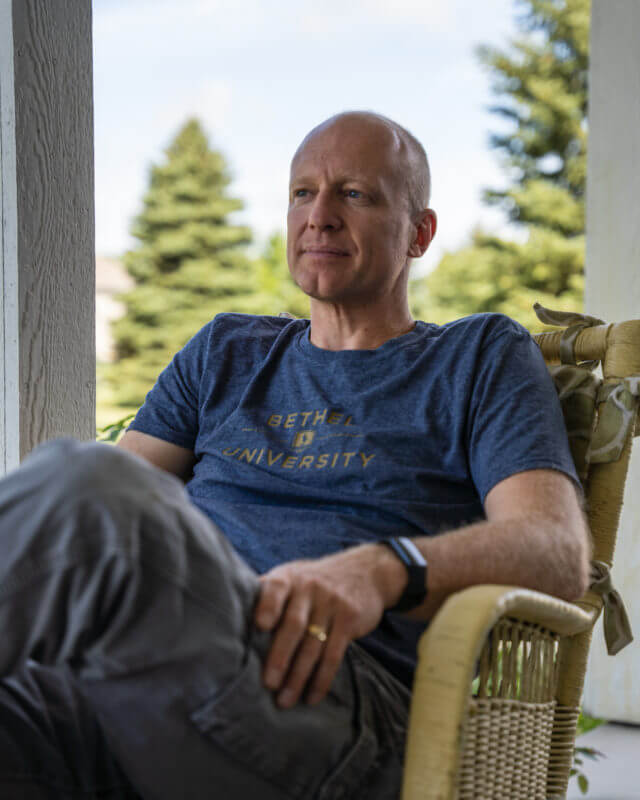
Each honeybee probably produces 1/12 of a teaspoon of honey, so it takes a team to truly make a significant amount of honey.
Caring and sharing
The Frieses have created an interdependent ecosystem on their farm; they planted linden trees to provide a reliable food source for the bees. In turn, the bees pollinate the apple trees and the raspberry patch. The less-than-perfect apples are fed to the cows. In the fall, the family harvests the honey.
“We’ve invited people over for the extraction process and they’re all just amazed how it happens and how much you get. Sharing the process with other people is always important to us as far as sharing what we know and sharing our adventure.”
In addition to the honey, the Friese family harvests the beeswax, and uses it to make lip balm.
“We melt the wax down with coconut oil, peppermint oil, and we have a little tray with 50 tubes. We just pour it in there, let it solidify, cap it, and label it up. And every Christmas for the last 10 years or so, I give it to all the employees at the clinic. Last year, we started doing it at the whole hospital, so everybody gets a little tube and everybody loves it. They literally say, ‘I’ve been saving this all year long because it’s so good!’”
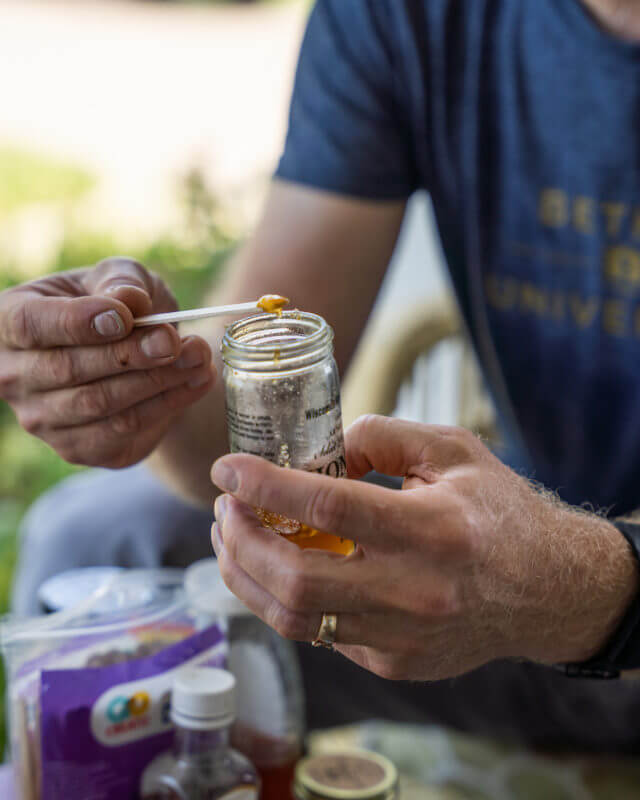
We’ve invited people over for the extraction process and they’re all just amazed how it happens and how much you get.
A connection to nature that brings joy to others
Even after fifteen years, Josh is still fascinated by the bees. He also appreciates how his hobby is a source of connection with some of his patients.
“Even in the office, I have a handful of patients who keep bees as well. So every time they come in they’ll ask, ‘How was your beehive this year?’ or, ‘How much honey did you get this year?’ So it’s that connection point that I enjoy talking about.”
Ultimately, Josh says, they keep bees simply because it’s fun.
“We’re not out to make money on the honey or anything like that, so it’s just fun. We love to give joy to the people who get the honey as presents or even the people who buy it, because they feel like they get a pot of gold when they take it home. Even the tubes of lip balm – just the joy they’re anticipating as we give it to people – that’s what I enjoy about this process honestly more than anything. Yes it’s hard work and it’s fascinating to see the bees and understand them more. But it’s truly the joy that we give other people.”
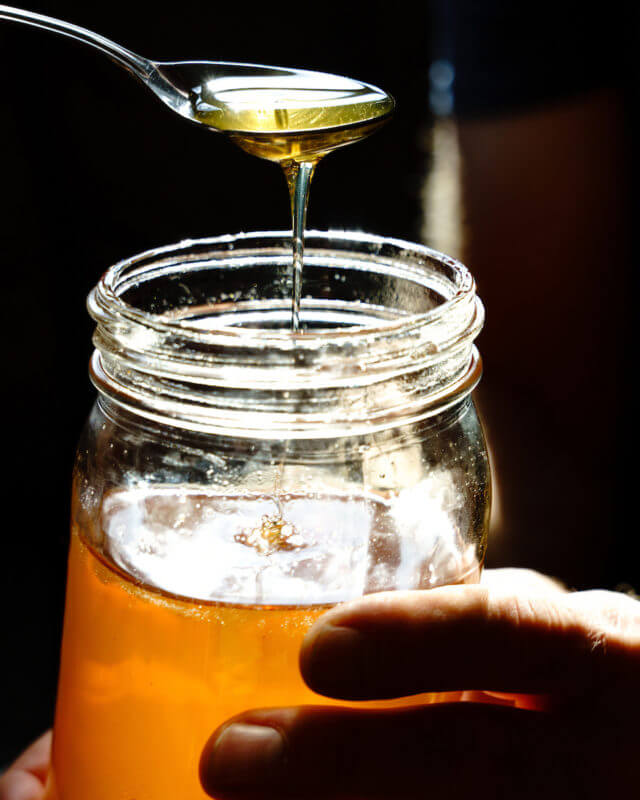
We love to give joy to the people who get the honey as presents or even the people who buy it. They just they feel like they get a pot of gold when they take it home

Backroads is a new CentraCare podcast for us and about us. Each episode will reveal something that connects us to each other, the work we do, and the difference we make in people’s lives.
Listen to the story of Dr. Friese and his bees in the latest episode:


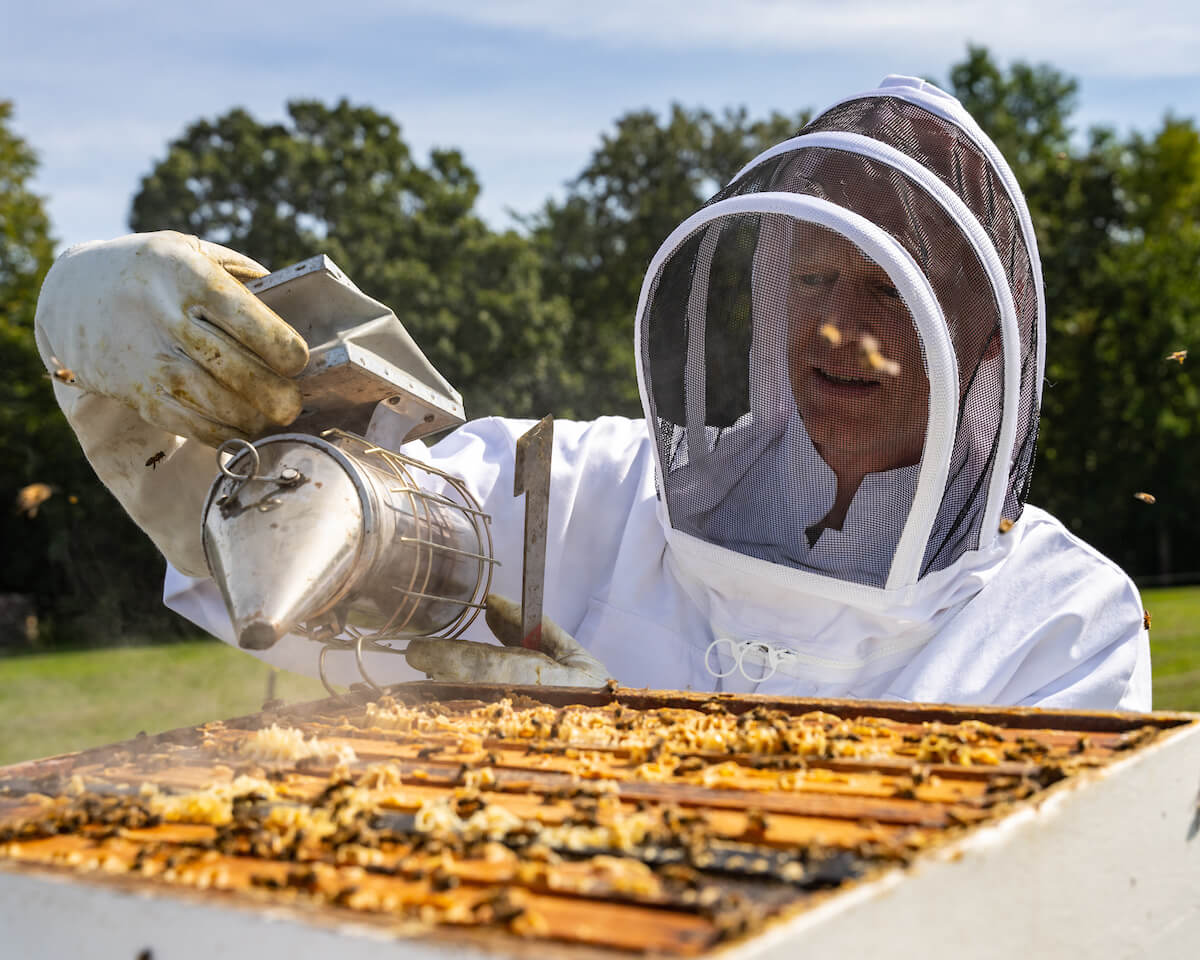
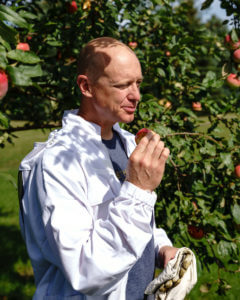
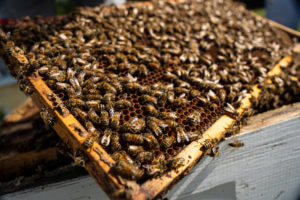
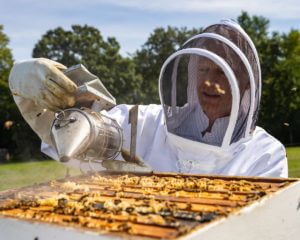
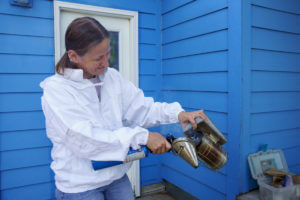
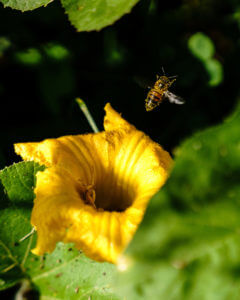
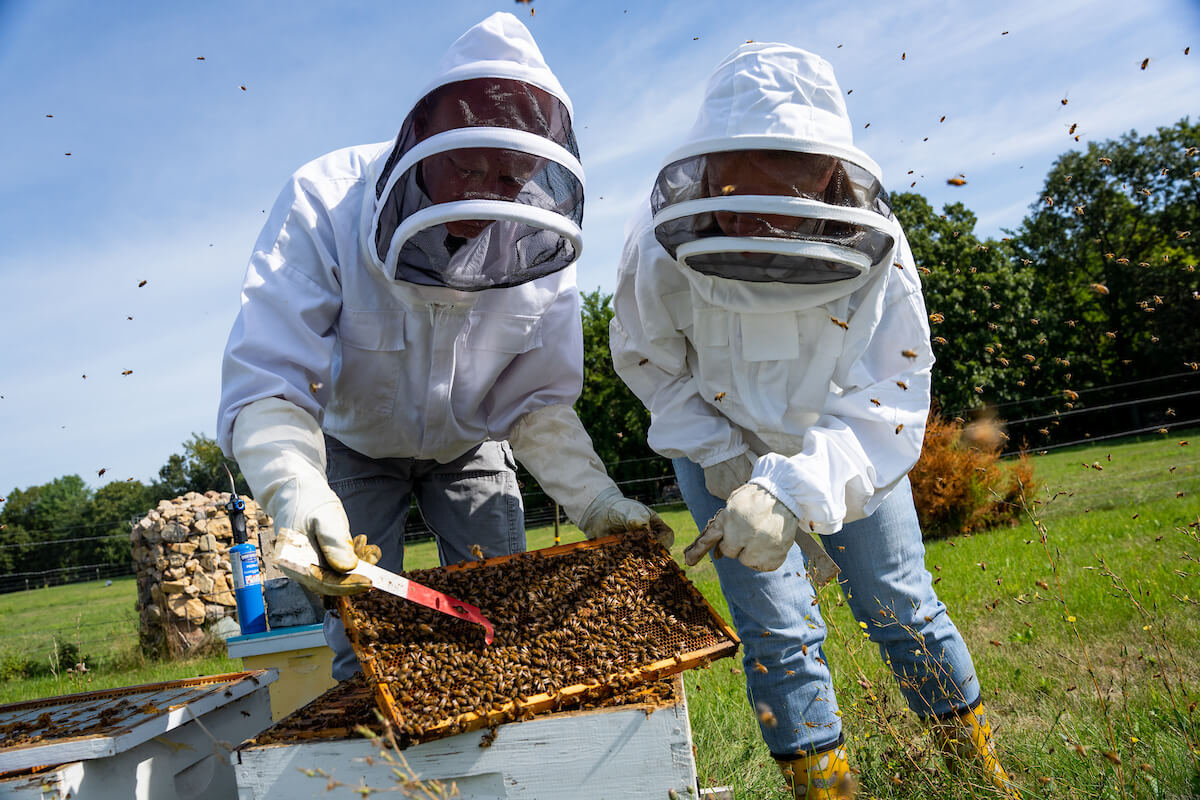
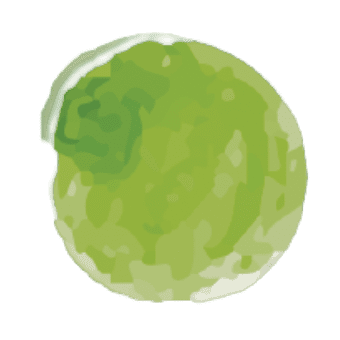
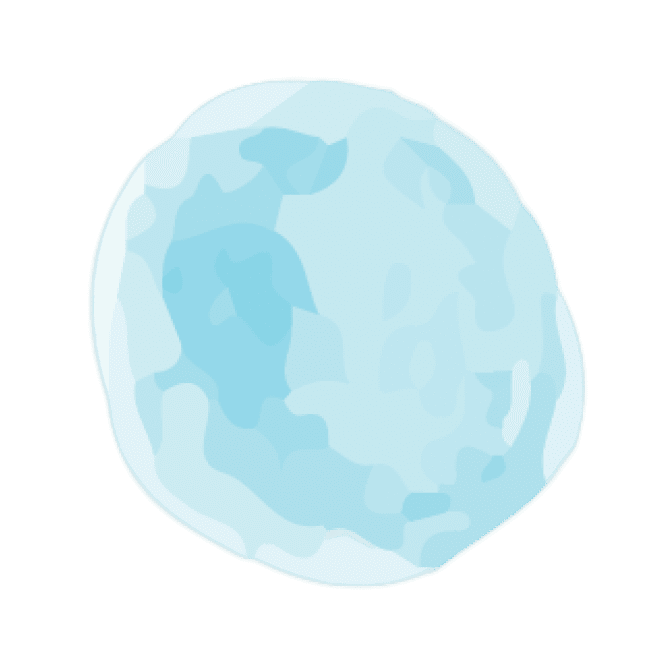
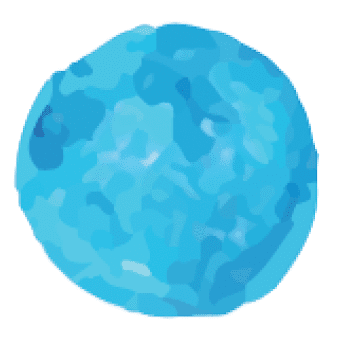
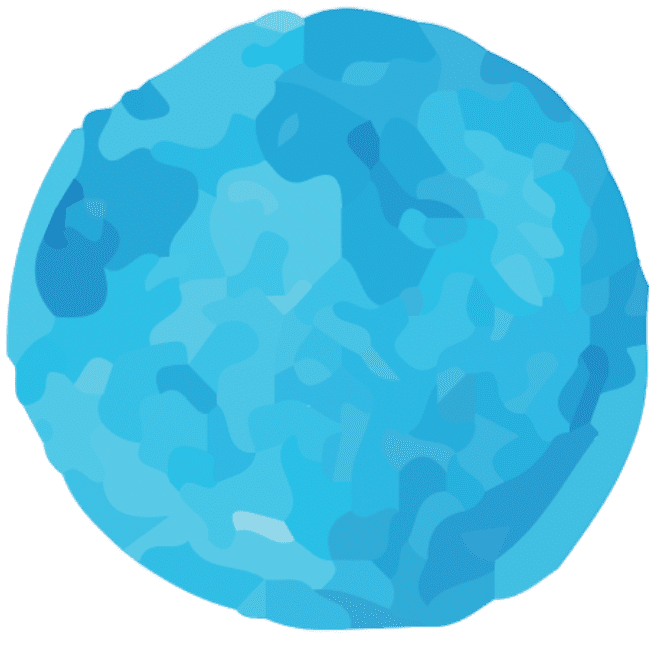
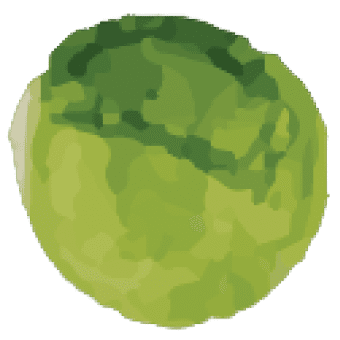
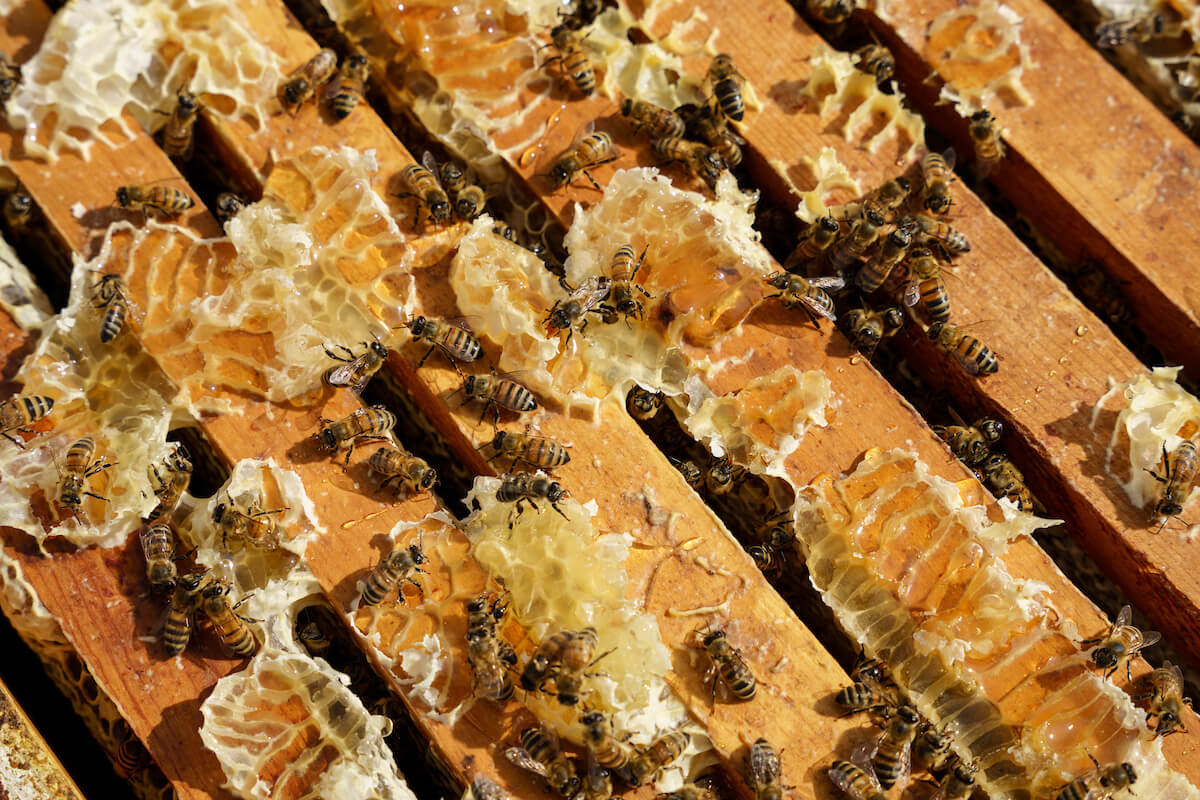
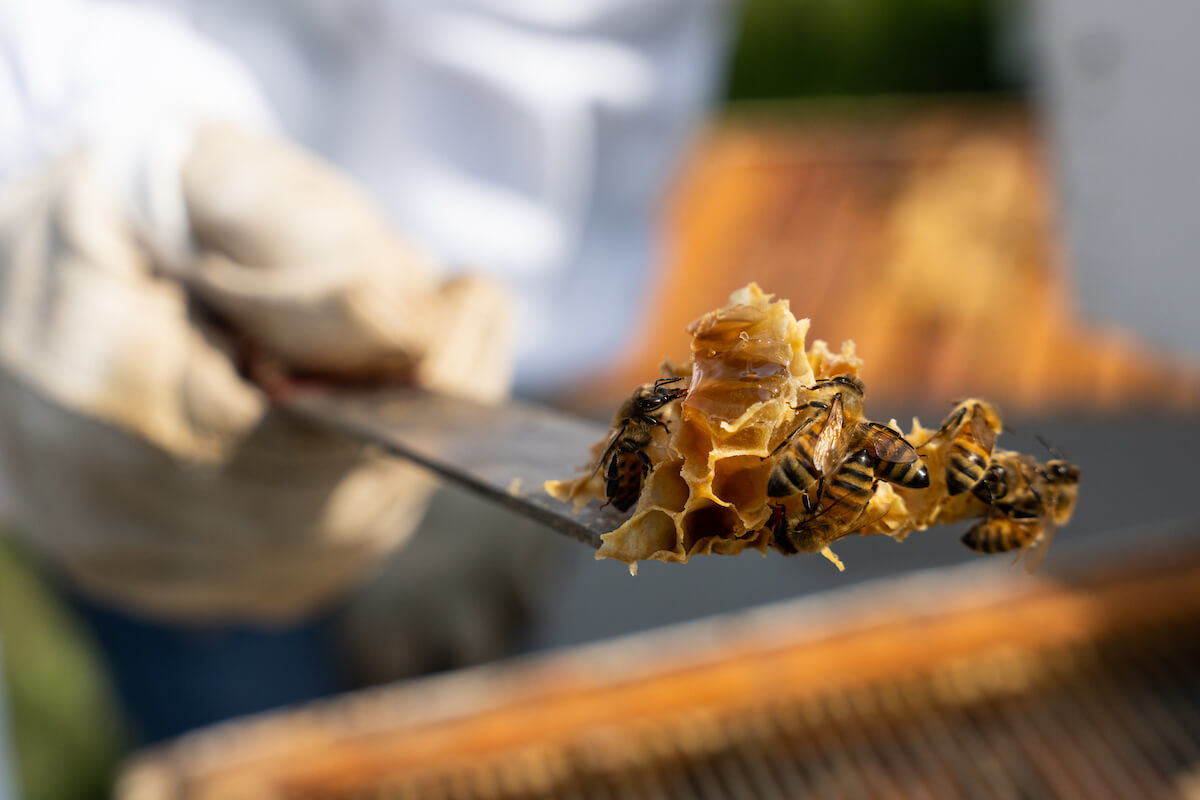
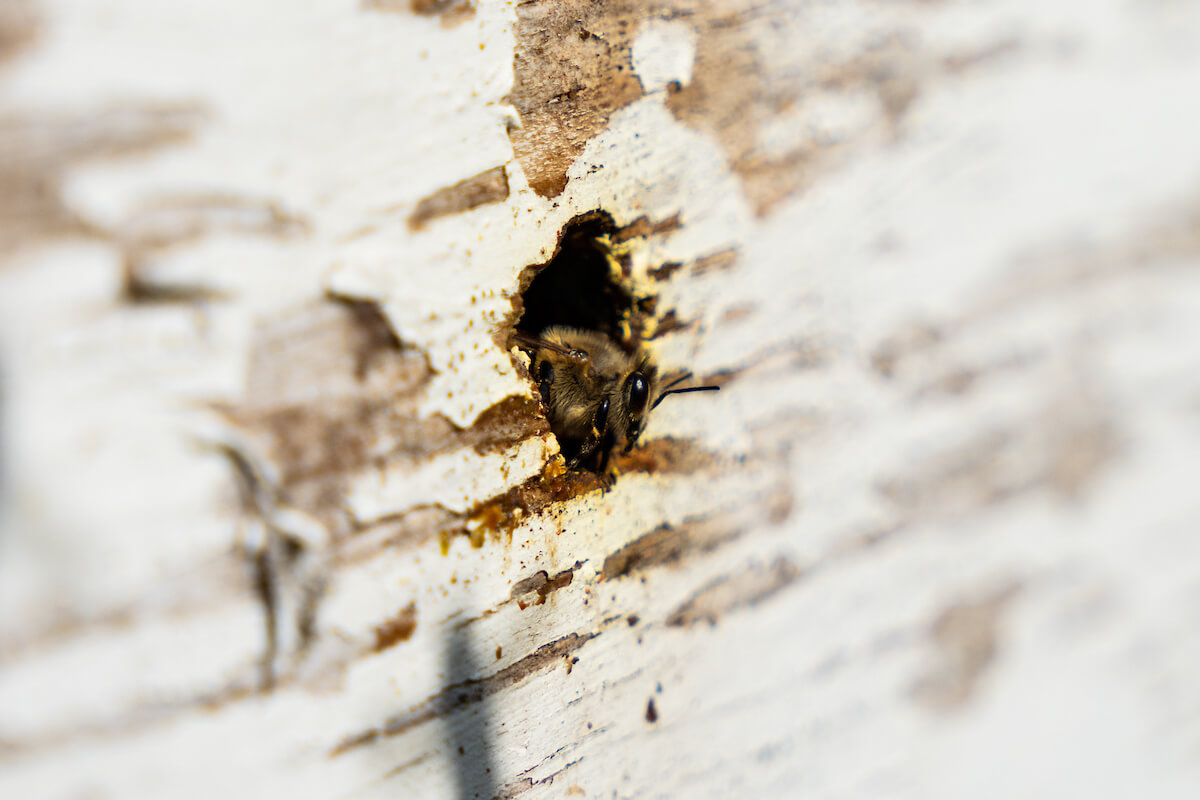

Very interesting story, thank you for sharing!
What a wonderful Labor of Love! Thank you for sharing your story.
This tugs at my heartstrings as my father, who passed away 20+ years ago, was a bee keeper all his life. This story reminds of the time I spent with him, extracting honey from the comb, chewing on the sweet nectar of the comb…all the jars of luscious honey…I would love to try the lip balm sounds fabulous!
Thank you Dr. Friese and Rachel for sharing.
I love this.
Thank you for sharing the story behind Friese Bees; such a great opportunity to share a labor of love that also gives so much in return!